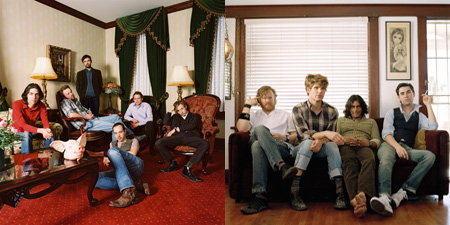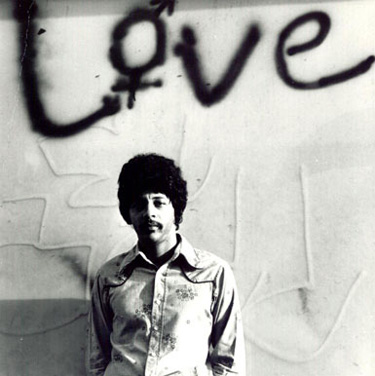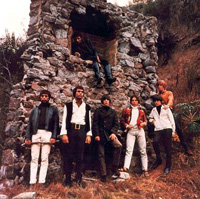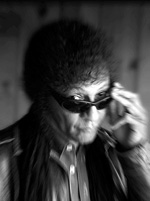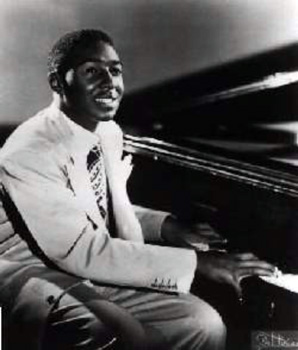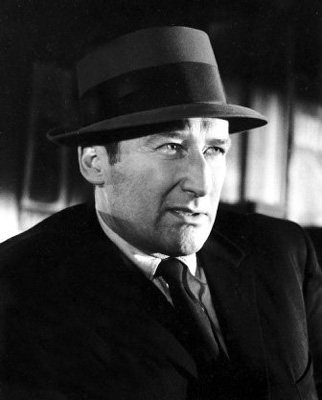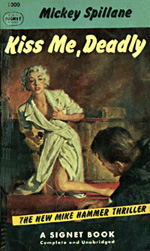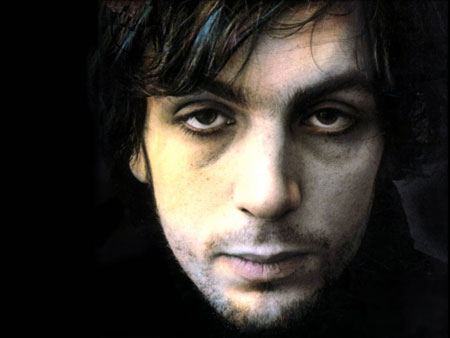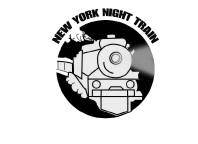
 |
 |
|||||||||||
| 12:12:2006: Help The Coup and Mr. Lif recover from bus crash
The good news is that no one was seriously injured when two of the most uncompromising and politically charged acts in rap history, The Coup and Mr. Lif , wound up in a tour bus accident last week. But the bad news is that all of their equipment and much of their personal belongings were destroyed. According to The Coup's Boots Riley:
The Coup has a Paypal account for donations and keep checking his site because Mr. Lif has one on the way. You can send donations on Paypal to the following address: thecoupbuscrash@gmail.com They've contributed greatly to our world and this is your chance to give back in a time of need. Boot's
Riley's letter regarding the crash
10:06:2006: NYNT Award for Literary Excellence... Iggy and the Stooges Rider:
If reading the Times Book Review or the New Yorker hasn’t yet led you to the contemporary Swift or Voltaire (or even H.L. Mencken for christ sakes) you've been searching for, perhaps you've been looking in the wrong place. Have you tried the internet yet? No, I'm not talking about Amazon.com, or those literary journals, or any of that drivel. I am referring to the Smoking Gun - where, in the concert riders section, you will find a document penned by an unsung man of letters who, while a bit less subtle than, say, Pope, but more witty and insightful than our foremost current jester sages like Chuck Klosterman, or that Gawker dude or whoever, has created what very well may be the penultimate work of contemporary prose. The mysterious author's name is Jos Grain and the document he produced is Iggy and the Stooges' concert rider. He has written a contractual document that simultaneously serves its practical purpose while offering a profound commentary on the human condition. Here you will find a masterful balance form and function infused with man's most precious truths and, dare I suggest, perhaps even the secret to the universe. Finally, this piece, like the better literature of its type, also offers invaluable insight into the life and work of these fine artists. I would like to thank Fabio from Earwax records for alerting me to this proud new addition to the world's literary canon. Whitout any further ado... Iggy and the Stooges Concert Rider Epilogue: I just got word from Jos Grain himself that the latest greatest Stooges riders can be found here.
* * *
10:02:2006: Soft Focus, American Hardcore, and Why I'm Not Going
Writer/musician Ian Svenonius of Weird War, Make-Up, Nation of Ulysses, etc., has been in New York of late filming his new talk show, Soft Focus for Vice TV. The last three weeks he’s interviewed Henry Rollins, Ian McKaye, Adrew W.K., Will Oldham, Chan Marshall, and Genesis P. Oridge (seven people I’d love to witness at a dinner party). There’s no music, no backdrop, no nonsense, no corporate product placement or ads on the set. Just a subtle comic light-dimming followed by an in-depth conversation. I hope they don’t over-edit it because this is exactly what the world needs now - not love sweet love, though that’d be nice as well – but something a bit deeper than soundbites.
The hardcore generation, despite its faults, was definitely not doing things to become rich and famous, but anti-rock stars in every sense of the word, even Greg Ginn (I think). Well aware that theirs was not the type of music that ever had a chance on the radio, this small group of folks set up their own universe as an alternative to that of A&R guys, managers, and publicists. And, while more than a few records from the hardcore era hold up, the main thing that survives is not only our touring circuit, or our record store network, but also the seeds they planted within us… That little pang of guilt when we sell out, give in, or merely accept things that we don’t believe in. They offered us a wonderful and uncompromising world, or stand against the predominant world, that, no matter what you hear, is still valid in this age when lines are much blurrier and selling out has become, for most, a necessity. I don’t believe that the DIY values are completely antiquated and am aware of a few circles of young and old folks employing them in various edges of the music world – in basements, warehouses, art galleries, and other makeshift venues, putting out CD-R’s, cassettes, and even 45s. There’s still plenty of music not touched by the entertainment divisions of multinational corporations, Madison Avenue, or even the inflated “indie-music” industry (though sadly, half of the stuff you find here, though indie-ish, is of that lesser evil).
The event was thrown by Paper magazine and sponsored by Dos Equis (they both get a shoutout - promotion is working!) and I arrived just in time to grab a beer and catch the entire set. Flipper was certainly one of the most confrontational and uncompromising bands of their era, and watching these unfashionable, weathered, and very real middle aged men proved they still hadn’t given in more than an inch or two. That night their banter was more concerned with immediate issues: demanding the admittance of a kid who couldn’t get in because he was too young, complaining about the smoking ban, and, when an audience member said, “fuck the hippies,” calling him “ignorant” and taking time to explain that if he had any sense he’d realize the real problem is the corporate fascist state. They even had Moby, who played with them once in the early 1980s, join them on bass for “Sex Bomb,” and then Bruce Loose literally removed the celebrity’s instrument and kicked the him off of the stage – harsh – but still loving in an old school way.
I guess I should just do my duty as a twenty-first century citizen and disembody the moment, leaving it be and merely saying that the band sounded amazing and the beer was fine.... But all of us have that little McKaye on our shoulder telling us it’s all bullshit... Are we supposed grin at the perversity of the fact that Sony Classics is offering us a portrait of an anti-establishment movement? If so, that's the worst kind of cynicism... Before you knock me off of my high Trojan horse (note to media - don't let me in to anything), in the tradition of blind idealism and old-school self-righteousness, let me go on the record as saying, SCREW THAT. I'm refuse. If you really need to find out about hardcore, listen the records instead... Of course I'm a hypocrite in this conversation - the talk show I'm praising will appear on Vice TV and I put Google ads up here to pay a small portion of my expenses... Nonetheless, I don't think the better lessons of the hardcore era, particularly regarding economics and art, are no longer convincing. I still hope we can continue to learn from theIan McKayes, Jello Biafras, Corey Rusks, Calvin Johnsons, or other musicians of the era who took matters into their own hands and refused to compromise - setting their own terms and their own economies, finding alternate paths, and even different destinations. We are still living in the distorted tail of the networks they created and have the power to continue experimenting with their countercultural economic and artistic model if we so desire. It's either that or Mc Nuggets. Maybe it's time we quit being so pragmatic and pick a side once again.
08:11:2006: Deadly Snakes Break Up (and Belated GoGoGo Airheart Eulogy)
Earlier this week Deadly Snakes announced that they were splitting. While I could really give a rat’s ass about the demise of their fellow Canadians DFA 1979, the Snakes are another story. And since I never got arround to commenting on GoGoGo Airheart’s split a couple of months ago, I will take this opportunity to kill two stones with one worthless bird as this is a case of SSDG (same sh*t different genre). Like GoGoGo Airheart, Deadly Snakes were an underground institution that never really got the notoriety that they deserved. Like GoGoGo, they were one of the best bands going, and hard workers that regularly toured and recorded, and were even on a great label (in GoGoGo’s case GSL and in Deadly Snakes In the Red). But after a decade of constant labor, both of these bands were lucky to get fifty people at their shows and I’m sure, particularly in this day and age, that they didn’t make a whole heck of a lot of money on record sales. And while they quit because they weren’t into it anymore, the factor that made the difference in both cases was the lack of return they got for their hard work and the resulting financial difficulties incurred. I hate to be a such a Marxiwst about everything, but the indie world has always been very much about economics in the end. The Deadly Snakes’ Maxwell McCabe-Lokos (Age of Danger) explained:
Ashish Vyas (Hash) of GoGoGo Airheart elaborated:
I apologize for using Pitchfork for my source material in both cases, but I think both of these quotes accurately illustrate the frustration of these hard-working, critically acclaimed veteran bands. One could speculate all day about both bands’ failure to achieve indie commercial success… They weren’t with it, or of there times? No, quite the opposite. GoGoGo, despite being there first, and much better than most bands trying it, was never able to capitalize on either the post-punk revival a few years ago or the current Kraut rock resurgence. The Deadly Snakes, arguably the best of the new crop of garage bands when that genre was in vogue with youngsters, again, around five years ago, never hit it. And there are a number of both bands' contemporaries, many of whom they influenced, who've found much more commercial success. They weren’t released, promoted, booked, etc. correctly? As I said, both bands were on excellent labels with substantial name recognition within the right niche groups and decent distribution. Both had decent PR firms taking care of them and got no shortage of press, particularly for their most recent releases. I remember complaining about the venues the Deadly Snakes were booked into last time around, but overall, they and GoGoGo played at the same general places in every town where similar bands play. They also both over the years had candy opening slots for a number of bigger acts. There’s really nothing that indicates that the people working these bands weren’t doing their jobs. They sucked? That of course is highly subjective. While both were capable of a great show, GoGoGo could be really messed up (which I actually liked) and the Deadly Snakes weren't always as showmanly and exciting live as their contemporaries and one of their singers' voice was definitely an acquired taste. Either way, there's no shortage of big bands with these kinds of shortcomings. If you want my two cents, it’s that neither GoGoGo or the Deadly Snakes were comfortable being lumped into movements. Both consistently explored new avenues and tried as hard as possible to be their own entity. They were reluctant to give people what they expected and I don’t think that either band sat still long enough for specific niche groups or trendmongers to grab onto them in mass. In other words, they were too restless and individualistic to become static commodities. AKA they were real artists... trapped in the bubble of the "geeks about music" fan-base. Critical acclaim and no money. Lucky at love but unlucky at cards. As the Snakes said on their last record, “a bird in the hand is worthless.” And, as the “American Pie” guy gushed in his Vincent Van Gough weeper that blared over the speakers in the deli a couple of nights ago, “This world was never meant for one as beautiful as you.” Well, I dunno if "beautiful" is the perfect word in either case. But they will both be greatly missed... Adios amigos. Thanks for the sweat, the tunes, and, most of all, the inspiration.
MEDIA:
08:04:2006: Bummer in the Summer - Love's Arthur Lee Passes Away at 61
I would like to make the news more than an obituary section but damn if the all-time greats aren’t falling off a bit young. Two of the most important musical minds of the late-1960s, Syd Barret, and now, Arthur Lee, both notoriously in bad health, have left us within a few weeks of one another. Like many of you, Love’s been one of my absolute favorites a good hunk of my life. I inherited their very garagy first album from my stepfather, picked up a copy of their Best of at fourteen, Forever Changes (sealed in a cutout bin of a new record store) and found Da Capo (used, after much effort, and, in the process, an original copy of Four Sail. These things cost very little at the time ) and, by sixteen, was covering “She Comes In Colors” with my high school band because we thought “Seven and Seven Is” was too obvious and we couldn’t figure out how to play “Stephanie Knows Who” – which has many more parts in a couple of minutes than the entire side that is “Revelation.” Forever Changes, which didn’t hit me at first for being a bit too sappy, became as great to me as it is to you… both as a late-night and afternoon record… though I haven’t yet got to hear the CD version with the out-takes, etc. I guess what I’m trying to say is that, this man's music has been a big part of my life for a long time. Also, after years of musical obsession and dozens of phases, there are very few things that have stuck with me consistently from my formative years to the present, and Love, like early Pink Floyd, is certainly one of them. I've also talked to a few others who've had the same experience. While our listening patterns are entirely a spontaneous organic process, things happen for a reason. In the case of Love, I think that there’re a number elements that make them stand out from their contemporaries and followers… Arthur Lee, like Syd Barrett, could be hokey (“the snot is caked against my pants/it has turned into crystal”), but nonetheless had an uncanny ability to write well-rounded pop songs that had unique elements. Particularly in the era with Bryan MacLean (R.I.P.), there’s nary an early Love song that doesn’t have something interesting about it. The band’s experimentation, particularly with the combination of Tin Pan Alley standards, folk, and rock’n’roll and later with flamenco, chamber music, and psychedelia was as unique for its time as it is for today. Lee’s inimitable voice, guitar playing, and general aesthetic are still refreshing and superb. Love's approach was not of it's time and, therefore, timeless - the early records are never too dated. Finally, Love, in their prime, had a great line-up and was simply one of the best rock bands of all time. Also, in a historical context, while certainly some of the finest stuff in music history was happening in 1966, and we listen to much of it today, it wasn’t yet mass culture and a handful of visionary groups that year were a bridge from “Louie Louie” frat rock, surf, and R&B to psychedelia and modern rock (The Velvet Underground and The Godz here, 13th Floor Elevators and Red Krayola in TX, nothing special in San Francisco (Charlatans?, Jefferson Airplane, Great Society, Warlocks [yuck], etc), Pink Floyd, The Zombies, Pretty Things, et al in the UK, etc.). But LA had a particularly fertile musical landscape: the more experimental Captain Beefheart or Mothers of Invention, or the garage Chocolate Watchband or Music Machine, or the folk rock of The Byrds and Buffalo Springfield, the bubblegum folk of Mamas and Papas or Sonny and Cher, or the California dreamin’ of Beach Boys or Manson, the churning organ of Anton LaVey, the wall of sound of Phil Spector, or the entire Hollywood/Vegas schmaltz and standards industry. So this was an ideal environment for Lee, yet another tasteful Memphian, an early LSD advocate, and, at first, a drummer, to help fuse the atypical collection of elements that became Love – and, in doing so, heavily inform the group that really broke the musical end of the cultural revolution open commercially in 1967, The Doors.
If you want a biographical obituary, go to the links that follow. I feel like I’m failing and meandering. I wish I could properly express my sadness regarding the passing of this soul that had such a troubled existence for the second half of his life yet gave so much to all of us. I wish I had the right words beyond why his band is important to me and the world in general. But I don't. But I want to give some kind of remembrance. I recognize that I'm stuck in the same ambiguous confusion expressed in many of Love's best songs:
Arthur Lee diserves better than this. Here're a few obits as of press time: OBITS: ARTHUR LEE/LOVE SITES:
07:31:2006: "Sad Journey": Floyd Dixon R.I.P.
“Mr Magnificent,” Floyd Dixon, passed away Wednesday at the age of 77. Floyd Dixon was one of the many Texas-based artists who moved to Los Angeles in the 1940s and helped popularize a post-swing style of music that would soon dubbed R&B. He was a teenage protégé of Charles Brown himself. And, though he, like many of his Central Avenue compatriots, was heavily influenced by the Brown’s smooth jazzy take on blues, Dixon found his greatest success playing a more rudimentary jump blues style similar to that of his friend Amos Milburn – a racket that was, in essence, rock’n’roll. And, a few years into his career found his biggest success in that idiom, the now-standard “Hey Bartender.” He even had a Lieber and Stoller hit, “Too Much Jelly Roll” penned for him. As R&B gave way to
soul, Dixon, like most of his fellow swing-based musicians, faded
into obscurity, retiring to Paris, TX. He made a comeback in the
1980s after a number of his recordings were re-released and, in
1996, shocked everyone with a live album called “Wake Up and
Live!” which proved that he hadn’t lost an ounce of
his either his energy or chops.
OBITS
07:18:2006: Kiss Him Deadly: Mickey Spillane Cashes In His Chips at 87
Except for a few bands and songs named after his books, Mickey Spillane doesn’t have a whole heck’ve a lot to do with music. His obit is however included here because he remains one of the biggest rock stars to ever publish a book. In an era before arena rock, or even rock’n’roll as a mass phenomenon, critics and contemporaries hated Mickey Spillane because he was a vulgar pop culture icon. He was a sexist communist-baiting blind-patriot brut of a writer. His works turned the gratuitous sex and violence up a notch for Hammett and Chandler’s already racy tough guy detective novel genre – and, in the process, stretched the limits for the rest of popular culture in the post-war period. He was an anti-intellectual who was publicly boasted that he was a writer instead of an author, his works peanuts instead of caviar, “the chewing-gum of American literature" – and this wasn’t self-deprecation. Rivaling Kerouac in the automatic writing department, he was known to churn out a book in as little as nine days. Despite the efforts of politicians, critics, and other arbiters of taste, he was the best-selling writer of the years immediately following World War II. And, like his fellow crude rock stars, if nothing else, he was undeniably a distinct sylist. Another odd piece of trivia: in addition to a variety of other jobs, Spillane performed the duties of both trampoline artist and human cannonball in the circus. He also used his celebrity to make extra cash endorsing light beer. And, like the rockers playing under the giant Coors banner at the stadium, it’s difficult to imagine him touching the stuff. I can’t think of anything more rock’n’roll than all of this – except for the fact that he retired when he found Jesus and staged a comeback years later in which his work showed no traces of moral reformation whatsoever. While I don’t agree with Mickey Spillane on most points, and don’t have much of a taste for Mike Hammer, I’ll admit that I’m a fan of his blunt writing, the exciting way it conveys American post-war anxiety, and the way it's left ice in my veins. And I can’t help but think what rock music would’ve been without him.
Guardian
Obituary
07:11:2006: Syd Barrett R.I.P.
Syd Barrett has, without a doubt, made some of my favorite music of all time. His songs have remained with me since early on and, though he wasn't active during my lifetime, I guess I always dreamed that he'd somehow be back - and, while not probable, as he was living and breathing, it was within the realm of the possible. Today our unlikely collective dream is officially impossible as one of the most original musical minds of the late Twentieth Centuryhas passed away. More to come soon. Go to these articles for now... Syd Barrett Site:
|
 |
|||||||||||

|
||||||||||||

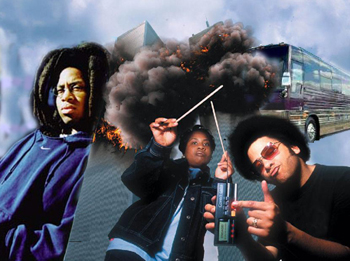

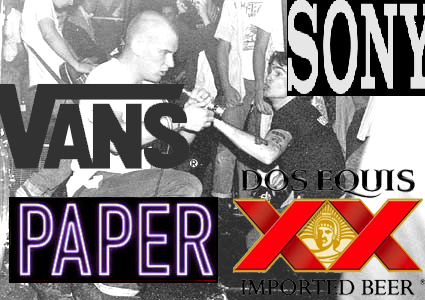

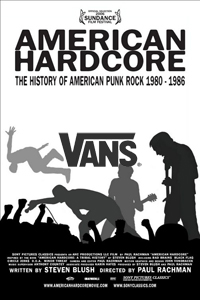 Which
leads me to my conclusion – a few days after hearing Rollins
and McKaye, I wound up attending the after-premier party for
Which
leads me to my conclusion – a few days after hearing Rollins
and McKaye, I wound up attending the after-premier party for 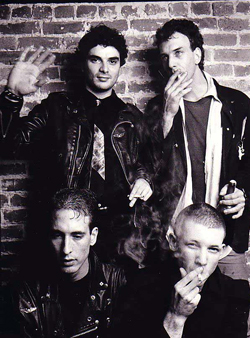 What
I think the band didn’t know was that, once the American
Hardcore slideshow began to role behind them, it was an endless
loop of about ten frames that degraded the entire experience even
more than the sponsorships, the venue itself, and half of the guests.
The loop started out with a picture of young Rollins, probably circa
1981, stagediving. The next frame was an ad for Vans. The following
frame was SSD Control. Then an ad for Dos Equis. Then an early-1980s
hardcore crowd. Then something involving Sony Pictures and Paper,
etc. Then something involving late-period Black Flag. These ten
or so frames repeated dozens of times throughout the duration of
the set of nihilistic sludge. Though this display could easily be
read as the incongruity between image and sound in the terms of
the Brechtian V-effect - intended to distance the spectator from
the drama, making a statement by pointing out the irony of the contrasting
sound and image, it seemed lost on most of the crowd. I felt like
I was living the conclusion to A Clockwork Orange and these
folks, who just saw an entire movie about an alternate way of living
seemed to be OK with it. A girl who talked to me told me I was being
a downer. I’m sure Flipper had no idea what was happening
behind them, but, as we now write histories that remove the band
and their values from our own time, closing the door on an era,
that moment at whatever the name of the phoney-ass Chelsea nightspot
(no more shout-outs for lameness) spoke volumes about the meaning
that we’re being told to derive from the entire era (or not
derive at this point). And, while Sony may spread the some of the
virus, it's likely that the kid's'll pick up on the violence and
the aesthetics that marked the movement more than the ethos. I left
feeling the inexplicable desire for one more Dos Equis, a copy of
Paper, a pair of Vans, and any thing released by that trusted media
company Sony.
What
I think the band didn’t know was that, once the American
Hardcore slideshow began to role behind them, it was an endless
loop of about ten frames that degraded the entire experience even
more than the sponsorships, the venue itself, and half of the guests.
The loop started out with a picture of young Rollins, probably circa
1981, stagediving. The next frame was an ad for Vans. The following
frame was SSD Control. Then an ad for Dos Equis. Then an early-1980s
hardcore crowd. Then something involving Sony Pictures and Paper,
etc. Then something involving late-period Black Flag. These ten
or so frames repeated dozens of times throughout the duration of
the set of nihilistic sludge. Though this display could easily be
read as the incongruity between image and sound in the terms of
the Brechtian V-effect - intended to distance the spectator from
the drama, making a statement by pointing out the irony of the contrasting
sound and image, it seemed lost on most of the crowd. I felt like
I was living the conclusion to A Clockwork Orange and these
folks, who just saw an entire movie about an alternate way of living
seemed to be OK with it. A girl who talked to me told me I was being
a downer. I’m sure Flipper had no idea what was happening
behind them, but, as we now write histories that remove the band
and their values from our own time, closing the door on an era,
that moment at whatever the name of the phoney-ass Chelsea nightspot
(no more shout-outs for lameness) spoke volumes about the meaning
that we’re being told to derive from the entire era (or not
derive at this point). And, while Sony may spread the some of the
virus, it's likely that the kid's'll pick up on the violence and
the aesthetics that marked the movement more than the ethos. I left
feeling the inexplicable desire for one more Dos Equis, a copy of
Paper, a pair of Vans, and any thing released by that trusted media
company Sony.